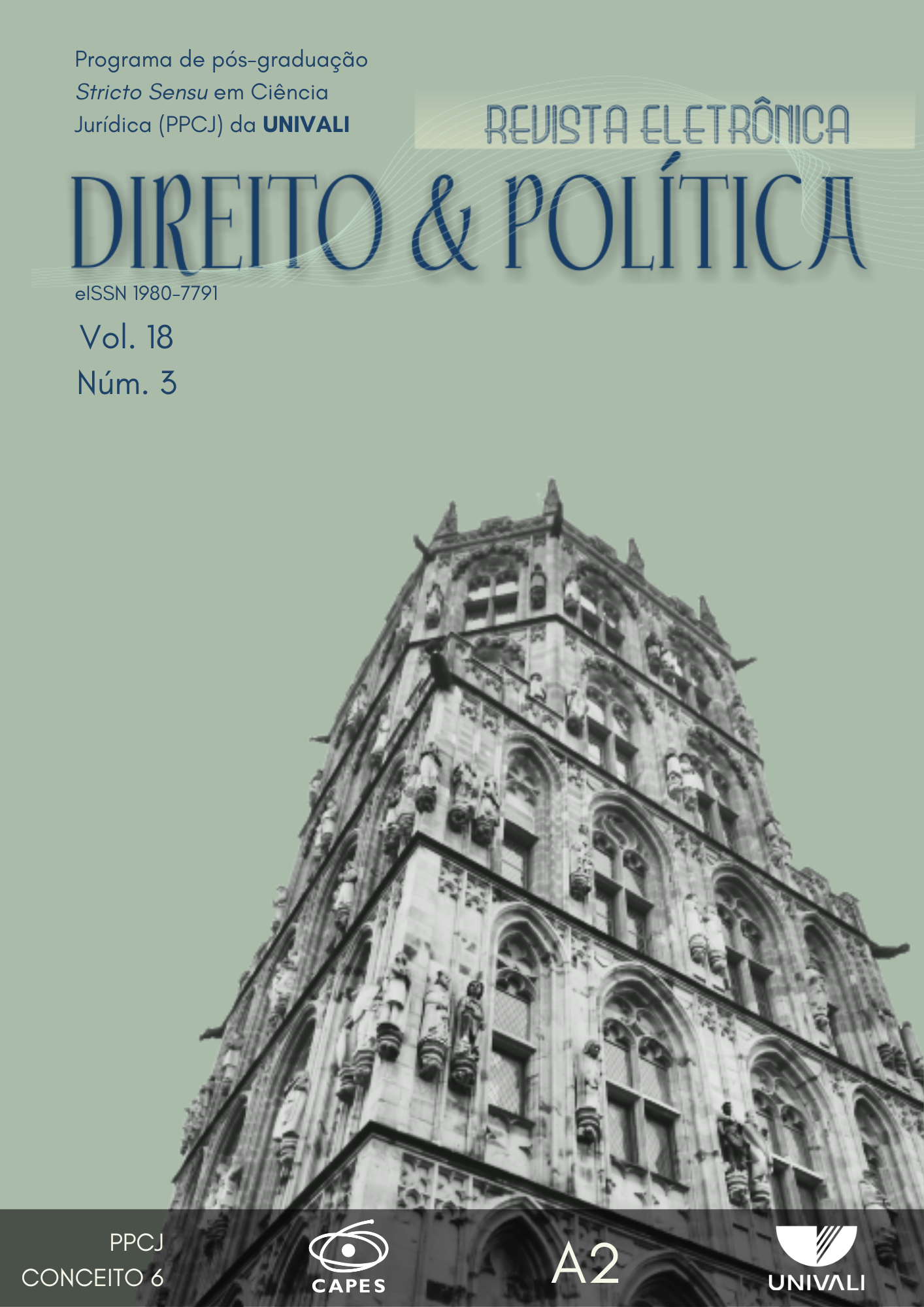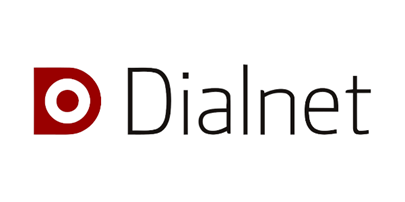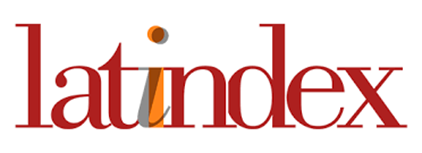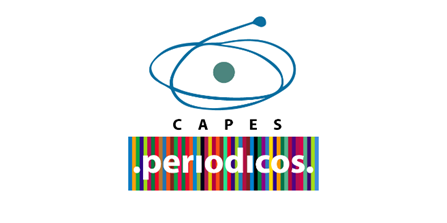PROTECCIÓN DE DATOS: LA PROTECCIÓN DE DATOS REGLAMENTARIOS DE MEDICAMIENTOS DE USO HUMANO
DOI:
https://doi.org/10.14210/rdp.v18n3.p663-692Palabras clave:
Propiedad Industrial, Patente, medicamento, protección de datos, ADPICResumen
Contextualización: La protección contra el uso comercial desleal de información sobre resultados de pruebas no divulgados y otros datos presentados a las autoridades reguladoras como condición para aprobar o mantener el registro para la comercialización de productos farmacéuticos destinados al uso humano ha sido objeto de un debate cada vez mayor en los últimos años. La protección de datos reglamentarios para productos de uso veterinario, fertilizantes, pesticidas, sus componentes y similares está regulada en Brasil por la Ley 10.603/02, sin embargo, la falta de legislación enfocada en medicamentos para uso humano ha promovido la judicialización de la tema, con la posibilidad de interpretaciones divergentes. Este es un instituto introducido por el Acuerdo sobre los ADPIC, en el art. 39.3, que reconoció la necesidad de proteger los resultados de las pruebas presentadas para la comercialización de una nueva entidad química, y dados los recientes debates y interrogantes derivados de que no existen reglas claras sobre su protección, es un tema que necesita ser estudiado y aclarado.
Objetivo: El objetivo de este artículo es presentar al lector una revisión sobre la protección de datos reglamentaria para uso humano (“protección de datos”), aclarando su alcance en la óptica de su origen a partir del art. 39.3 del Acuerdo sobre los ADPIC y su protección en un contexto internacional y nacional.
Metodología: A través de una revisión de la literatura, de un comparativo con la protección por patentes, de análisis del marco legal internacional y nacional y una revisión de la jurisprudencia sobre el tema, buscamos comprender la protección legal de la "protección de datos" frente a la disposición constitucional e infraconstitucional brasileña.
Resultados: La protección de datos reglamentarios necesita reglamentación en Brasil, lo que lleva a la conclusión de que el establecimiento de criterios mínimos para la exclusividad de los datos de prueba no públicos presentados a las autoridades gubernamentales beneficiaran al sector, aportando claridad y seguridad jurídica al mercado, reduciendo la directa y costos indirectos asociados al lanzamiento y mantenimiento de productos farmacéuticos para uso humano en el mercado brasileño.
Descargas
Citas
ARAÚJO, Luiz Alberto David; NUNES JR., Vidal Serrano. Curso de Direito Constitucional. 6ª ed. São Paulo: Saraiva, 2002.)
BASSO, Maristela. Proteção de dados de prova e o registro de comercialização de produtos farmacêuticos de uso humano: relação entre Acordo TRIPS/OMC e o direito brasileiro. In. MARINHO, Edelvacy Pinto; ASSAFIM, João Marcelo de Lima. (Coords). Inovação e Setor farmacêutico. São Paulo: Saraiva Educação, 2019.
BERGEL, Salvador D. Disposiciones generales y principios basicos del acuerdo TRIPS del GATT. In. URIA, Juan María Arenas; BRAVO, José Manuel. Propiedad intelectual en el GATT. Buenos Aires: Ediciones Ciudad Argentina, 1997.
BONAVIDES, Paulo. Curso de Direito Constitucional. 11ª ed. rev., atual. e amp. São Paulo: Malheiros, 2001.
BRASIL, Justiça Federal de 1ª instância, Seção Judiciária Do Distrito Federal , 7ª Vara, Setenção tipo A nº 231/2011, Processo nº 2008.34.00.016643-4, Lundbeck Brasil Ltda e H. Lundbeck A/S versus Agência Nacional De Vigilância Sanitária – Anvisa, Aché Laboratórios Farmacêuticos S/A e Biosintética Farmacêutica Ltda., Juiz: José Márcio Da Silveira E Silva, Brasília, 2011.
CARVALHO, Nuno. Os dados de testes no Acordo TRIPS. In. MARINHO, Maria Edevacy Pinto; ASSAFIM, Marcelo de Lima. (Coords). Inovação e Setor Farmacêutico. São Paulo: Saraiva Educação, 2019.
COOK, Trevor. Regulatory data protection in pharmaceuticals and other sectors. In: KRATTIGER, A. MAHONEY, RT. NELSEN, L. et al. Intellectual Property Management in Health and agricultural innovation: a handbook of best practices. MIHR: Oxford, U.K and PIPRA: Davis, USA.
CORREA, Carlos M. Propriedade intelectual e saúde pública. Florianópolis: Fundação Boiteux, 2007.
CARVALHO, Nuno. Os dados de testes no Acordo TRIPS. In. MARINHO, Edelvacy Pinto; ASSAFIM, João Marcelo de Lima. (Coords). Inovação e Setor farmacêutico. São Paulo: Saraiva Educação, 2019.
FERREIRA FILHO, Manoel Gonçalves. Curso de Direito Constitucional. 31 ed. rev., ampl. e atual.São Paulo, Saraiva, 2005. DOI: https://doi.org/10.11606/issn.2318-8235.v31i4p533-564
MARINHO, Maria Idelvacy, In. Inovação e Setor Farmacêutico, vol II. Coord. Maria Idelvacy Pinto Marinho e João Marcelo de Lima Assafim. São Paulo, Saraiva Educação, 2019.
POLIDO, Fabricio. Proteção da exclusividade de dados de testes e o Acordo TRIPS/OMC: em defesa da interpretação consistente como ethos de política concorrencial e de saúde pública do Brasil. In: MARINHO, Edelvacy Pinto; ASSAFIM, João Marcelo de Lima. (Coords). Inovação e Setor farmacêutico. São Paulo: Saraiva Educação, 2019.
RODRIGUES, Daniela Oliveira. As flexibilidades do Acordo TRIPS na nova dinâmica comercial internacional. Boletim Científico ESMPU, Brasília, n. 39, 28, jan./jun. 2012.
SILVA, José Afonso da. Curso de Direito Constitucional Positivo. 20ª ed. rev.e atual. São Paulo: Malheiros, 2002.
Descargas
Publicado
Cómo citar
Número
Sección
Licencia
Na qualidade de autor(es) da colaboração, original e inédita, sobre o qual me(nos) responsabilizo(amos) civil e penalmente pelo seu conteúdo, após ter lido as diretrizes para autores, concordado(amos) com o Regulamento da Revista Eletrônica Direito e Política e autorizo(amos) a publicação na rede mundial de computadores (Internet), permitindo, também, que sua linguagem possa ser reformulada, caso seja necessário, sem que me(nos) seja devido qualquer pagamento a título de direitos autorais, podendo qualquer interessado acessá-lo e/ou reproduzi-lo mediante download, desde que obedeçam os Direitos Autorais.


















